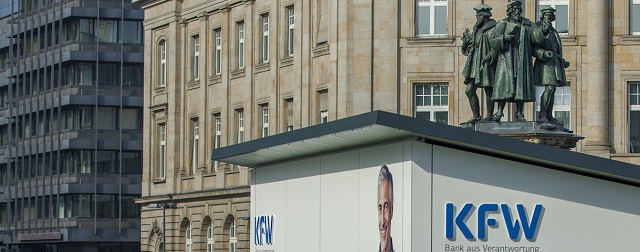While the ECB’s president Mario Draghi reflects on new measures to inject liquidity into the European SMEs, Germany has taken the lead on the mission and announced a deal to make bilateral credits available to Spanish and Portuguese small and medium size companies with difficulties to get access to credit in their countries.
Chancellor Angela Merkel’s plan would involve the Developing German public bank, or KfW in its German acronym, which would give some €10 billion to peripheral credit institutions–Instituto de Crédito Oficial or ICO in the case of Spain–so that they can grant credit in turn to Southern European SMEs taking advantage of low German interest rates. As reported by Der Spiegel, and mentioned in an investor note today by Santander analysts, it is a move perhaps “to whitewash the role of the country regarding the European peripheral area, a very important region for German exports.” On the other hand, experts at Bankia Bolsa see it as a “sign that political leaders start to search desperately for growth.”
German officials are already working in a cooperation model with the Spanish Instituto de Crédito Oficial that should be followed as an example by Portugal, and probably also by Greece.
The financing facilities plan will need the approval of the Economic Minister, Philippe Rösler, as well as the Bundestag’s. Additionally, Germany could participate in a €1,2 million venture capital fund through the KfW in order to enable the Spanish government to mobilize a total investment amount of €3,2 million.
Draghi stated during the last G-7 Summit in London that the central bank is considering purchases of asset-backed securities among other options, to push the credit flow towards SMEs, but the idea collides frontally against German considerations since many of those products became “toxic” for some years, consequently causing in part the financial crisis.






Be the first to comment on "Spanish small business, the starting point for a growing Germany"